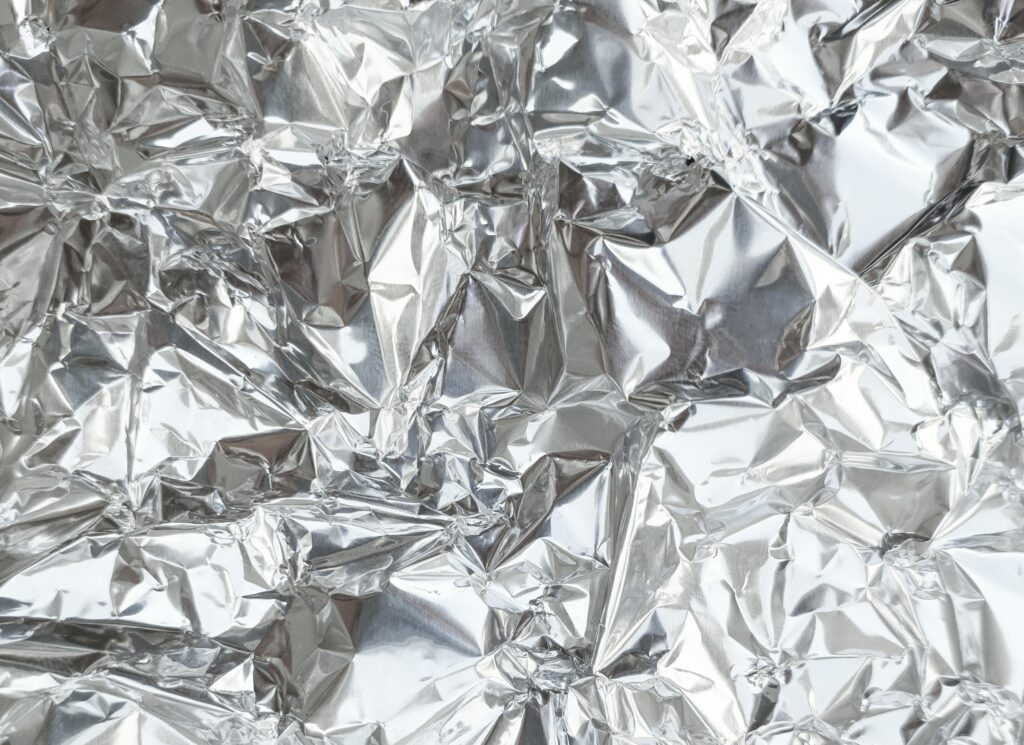Health
Is Aluminum Foil Harmful to Your Health?
Aluminum foil is a common household item used for cooking, storing food, and various other purposes. However, in recent years, concerns have been raised about the potential health risks associated with the use of aluminum foil.
Aluminum foil is a staple in most kitchens, often used for wrapping up leftovers or cooking meals in the oven. But have you ever wondered if this convenient kitchen item could be causing health problems? In this article, we explore the question “Does aluminum foil cause health problems?” and separate fact from fiction.
Common Uses of Aluminum Foil
Before delving into the health dangers linked with aluminum foil, it’s necessary to understand its widespread applications. Aluminum foil is versatile and can be used for a variety of tasks in the kitchen. It is frequently used to wrap food for storage or to keep it warm, as well as to line baking sheets or pans to avoid sticking.
Furthermore, aluminum foil is often used for grilling or barbecue since it distributes heat uniformly and can be easily bent to fit various types of food. Its reflecting surface also helps to maintain the temperature of the food being cooked.

Is Aluminum Foil Safe?
Many people have expressed worry about the safety of aluminum foil. Aluminum is a common element in the Earth’s crust that can also be found in food, water, and air. While excessive levels of aluminum have been related to negative health effects such as Alzheimer’s disease and bone abnormalities, the quantity of aluminum transferred from foil to food during cooking is thought to be small.
According to the World Health Organization (WHO), the average human eats between 1 and 10 milligrams of aluminum per day from diverse sources such as food, air, and water. The small amount of metal that may leak into food from aluminum foil while cooking is unlikely to constitute a substantial health risk for most people.
Controversies Surrounding Aluminum Foil and Health
Despite reassurances from health organizations, there have been concerns about the use of aluminum foil and its potential health risks. Some research has revealed a link between aluminum exposure and health issues such as Alzheimer’s disease. However, the scientific community has not achieved an agreement on this issue.
It’s worth noting that the bulk of studies looking at the potential health hazards of aluminum have concentrated on occupational exposure or high levels of aluminum intake from pharmaceuticals or specific industrial processes. The dangers of daily exposure to aluminum foil are still poorly known.

Research on the Health Effects of Aluminum Foil
Research into the health impacts of aluminum foil is ongoing, with the goal of providing a better knowledge of any potential dangers. Numerous research have been undertaken to assess how much metal can migrate from foil to food while cooking and how this affects human health.
According to a study published in the International Journal of Electrochemical Science, the amount of aluminum transmitted from foil to food varies based on several factors, including the food’s pH level, cooking temperature, and cooking time. However, total transfer was found to be modest, with the largest levels occurring in acidic foods and when the foil was subjected to high temperatures for extended periods of time.
Potential Risks of Using Aluminum Foil in Cooking
While research indicates that the possible health concerns of using aluminum foil are minimal for the ordinary individual, there are some situations in which caution should be exercised. Individuals with kidney illness or those undergoing dialysis should restrict their exposure to aluminum since their bodies may have trouble processing and removing the metal.
It’s also worth noting that using aluminum foil to cook very acidic or salty dishes, as well as cooking at high temperatures for long periods of time, might increase the likelihood of aluminum leaching into the food. As a result, it is recommended that you avoid or use aluminum foil sparingly when cooking with these methods.

Tips for Safe Use of Aluminum Foil in the Kitchen
Here are some kitchen safety precautions to help you use aluminum foil safely:
- Avoid using aluminum foil for cooking highly acidic or salty foods, as this can increase the likelihood of aluminum leaching.
- Use aluminum foil sparingly and only when necessary. Consider alternative options for cooking and storing food.
- When using aluminum foil for grilling or barbecuing, avoid direct contact between the foil and the flames, as this can increase the risk of aluminum leaching into the food.
- Store leftover food in appropriate containers instead of wrapping it in aluminum foil. This reduces the risk of aluminum transferring to the food during storage.
By following these simple guidelines, you can continue to use aluminum foil safely in your kitchen while minimizing any potential risks.

Alternatives to Aluminum Foil
For those seeking to reduce their exposure to aluminum, there are alternative options available. Consider these alternatives for various kitchen uses:
- Use parchment paper: Parchment paper is a non-stick baking paper that can be used as a substitute for aluminum foil when lining baking sheets or pans.
- Invest in glass or ceramic containers: Instead of wrapping food in aluminum foil for storage, opt for glass or ceramic containers with airtight lids.
- Silicone baking mats: Silicone baking mats can be used as a non-stick surface for baking, eliminating the need for aluminum foil as a liner.
These alternative options can help you reduce your aluminum exposure without compromising the functionality of your kitchen.
Conclusion
To summarize, the scientific evidence about the potential health dangers of using aluminum foil indicates that the average person is unlikely to have severe health problems as a result of its use. The quantity of aluminum transmitted from foil to food while cooking is modest, and the hazards are further mitigated by using safe methods.
Individuals with kidney illness or those undergoing dialysis should exercise caution and restrict their aluminum exposure. Additionally, it is recommended to avoid using aluminum foil for particularly acidic or salty foods, as well as cooking at high temperatures for extended periods of time.
Finally, the decision to use aluminum foil in the kitchen should be based on your own needs and tastes. If you’re concerned about aluminum exposure, look at alternatives like parchment paper or glass containers.
Remember to constantly stay informed and make decisions that are beneficial to your health and well-being.
Trusted Health, Wellness, and Medical advice for your well-being



